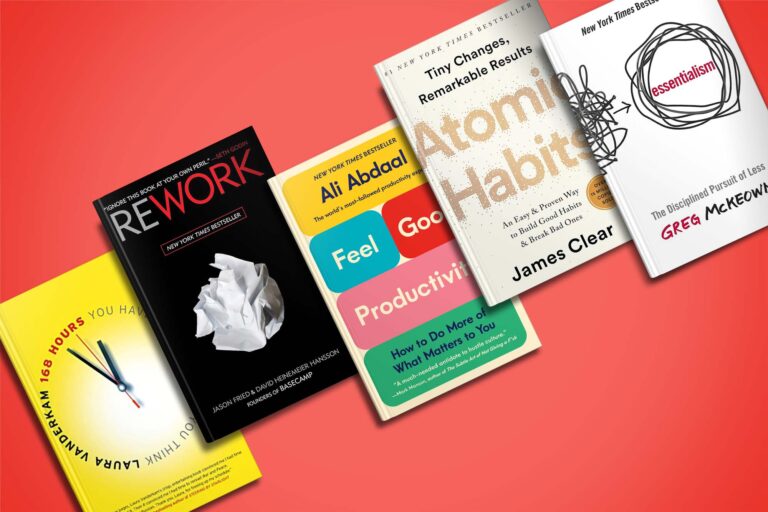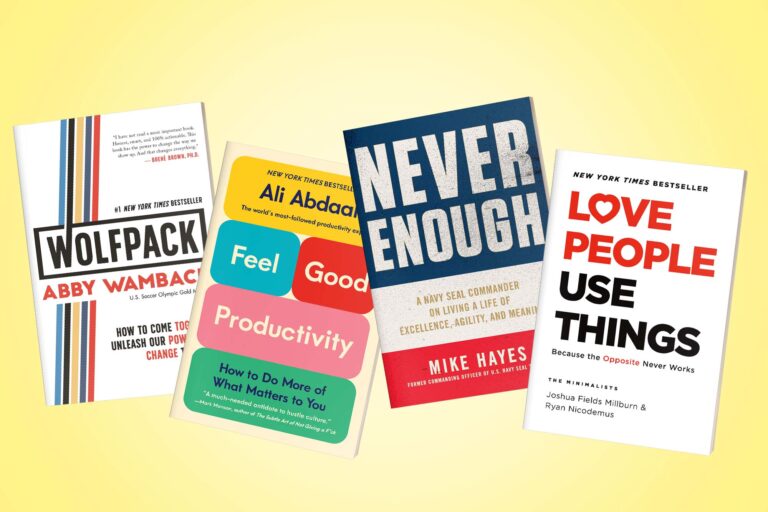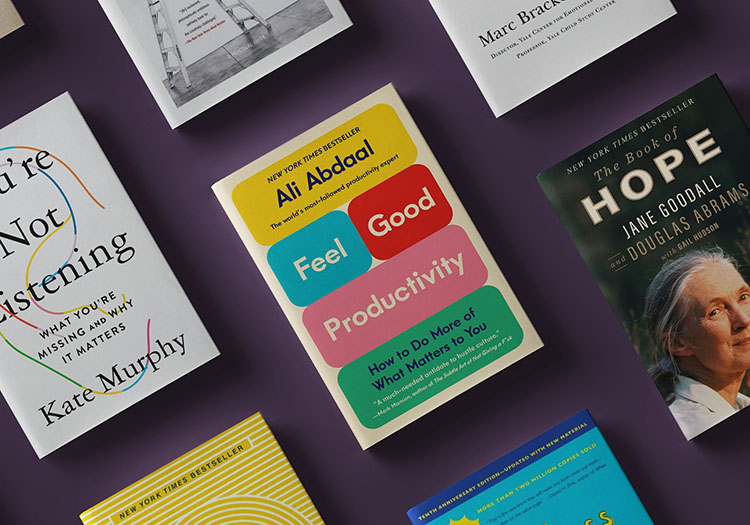The following books about mental health range from candid personal accounts and acclaimed self-help narratives to rigorously researched studies by experts in therapy and neuroscience. Together, they illuminate the complexities of individual, familial, and societal mental health struggles. They also remind us that we’re not alone, and that help is always out there.
13 Illuminating Books About Mental Health
By Stephanie Brown
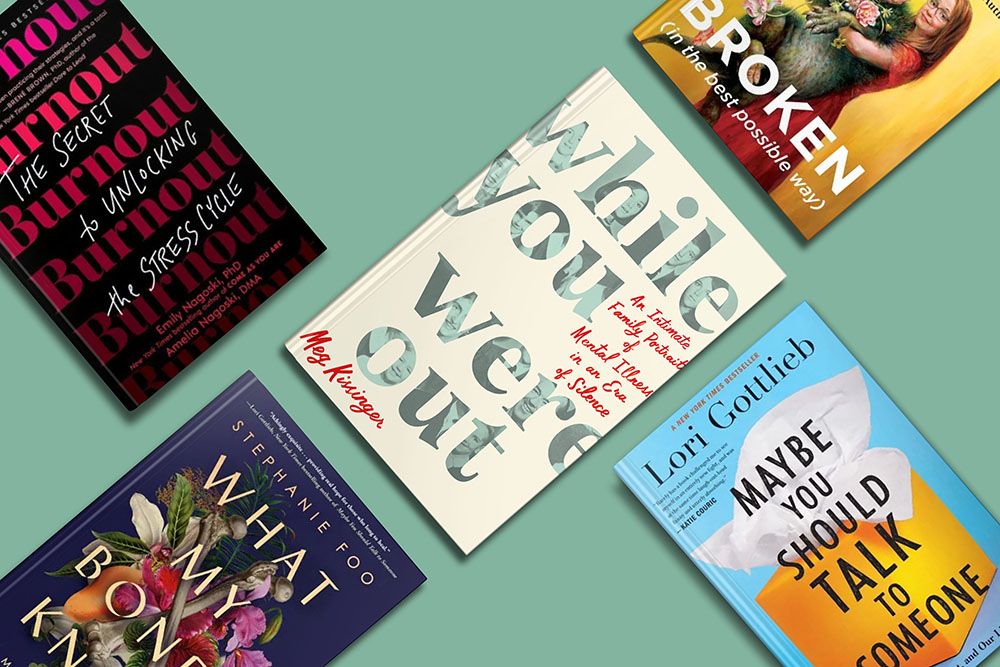
These insightful and compassionate reads provide a guiding light.
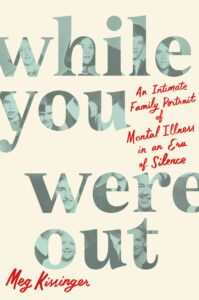
While You Were Out
By Meg Kissinger
In her memoir, award-winning journalist Meg Kissinger delivers an emotional meditation on family, mental illness, and America’s flawed mental healthcare system. From the outside, the Kissinger family appeared happy, healthy, and successful. Behind closed doors, however, they were suffering — from mental illness and from the culture of silence and shame that surrounded it. Kissinger’s family experience with mental illness led to her becoming an investigative journalist, where she worked tirelessly to expose America’s broken healthcare system and shine a compassionate light on those impacted by mental illness and addiction. While You Were Out is the culmination of her journey. Kissinger movingly chronicles her family’s struggles with mental illness and her career as a journalist, and she delivers a rousing call for greater empathy, openness, and access to mental healthcare.
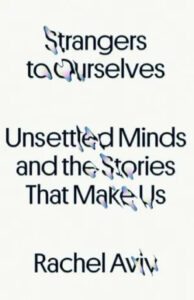
Strangers to Ourselves
By Rachel Aviv
Award-winning New Yorker writer Rachel Aviv interweaves reportage and memoir with sympathetic psychological portraits in this exploration of how mental health diagnoses shape identity and the life paths we take. Strangers to Ourselves is Aviv’s own account of living in a hospital ward at the age of six as well as the stories of others whose experiences and ordeals she seeks to understand, from a man intent on getting revenge on his psychotherapists to a woman behind bars who yearns for her children’s forgiveness in the wake of psychosis. The result? An insightful amalgam of research, personal history, and archival study, and a much-needed challenge to the ways we usually talk about mental health.
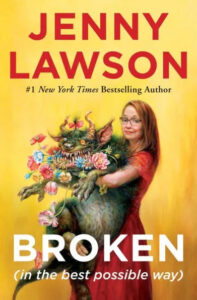
Broken
By Jenny Lawson
In Broken, bestselling author Jenny Lawson harnesses her signature wit to produce a brutally honest portrait of life with depression, capturing instances of soul-crushing despair as well as moments of laugh-out-loud absurdity. For anyone who’s dealt with debilitating anxiety or depression, Lawson’s acclaimed memoir offers a refreshingly relatable account of facing mental illness with humor and honesty.
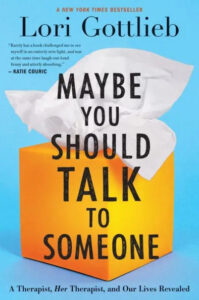
Maybe You Should Talk to Someone
By Lori Gottlieb
What’s it like to be a therapist’s therapist? Lori Gottlieb explores this question in her instant New York Times bestseller, Maybe You Should Talk to Someone. After experiencing a crisis, L.A.-based psychotherapist Gottlieb seeks out help. She finds it in the form of Wendell, a fellow therapist. As she works closely with her patients in her office, Gottlieb also reaches personal breakthroughs in Wendell’s office, realizing that she’s grappling with many of the same issues and concerns as her clients. With compassion and grace, Gottlieb considers what it’s like to be both a caregiver and a patient, offers a nuanced examination of the stories we tell ourselves to get by, and champions the benefits of therapy.
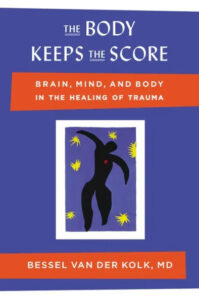
The Body Keeps the Score
By Bessel van der Kolk, M.D.
In The Body Keeps the Score, Dr. Bessel van der Kolk illuminates the connection between trauma, bodies, and mental illness. The author draws on neuroscience, psychotherapy, mindfulness techniques, and more to explore how clinicians can help patients rewire their brains and combat the impact of long-term traumatic stress. Trauma is so powerful that it writes itself into everything, from emotional regulation and memory to our ability to feel safe and form meaningful relationships. While trauma often leads to feelings of helplessness, therapeutic advances outlined in this groundbreaking work help individuals take back control of their bodies, minds, and lives.
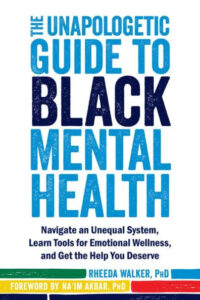
The Unapologetic Guide to Black Mental Health
By Rheeda Walker
In The Unapologetic Guide to Black Mental Health, psychologist Rheeda Walker reckons with the mental health crisis impacting the Black community, delivering a scathing assessment of an unequal system and offering guidance for those in need of help and healing. Walker vividly outlines the many mental health challenges facing Black Americans today, challenges that are made worse by generational trauma, chronic illness, poverty, and entrenched racism and biases. She then offers clear-eyed advice for recognizing potential mental health issues, navigating the healthcare system, and practicing emotional wellness at both a personal and communal level.
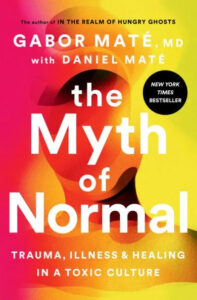
The Myth of Normal
By Gabor Maté, M.D.
In The Myth of Normal, renowned physician Dr. Gabor Maté delves into the origin of illness, critiquing Western cultures that brag about their medical achievements while the health of their citizens plummets. The bestselling work highlights the connection between everyday stress, our bodies, and mental health. It then asks: If mental illness is so common, why haven’t we updated our understanding of “normal”? Why don’t our healthcare systems take seriously the impact our stress-filled modern lives have on our bodies? Deeply researched and persuasively written, the book encourages us to imagine a new “normal” in which we treat mental illness as a societal symptom rather than an individual one.
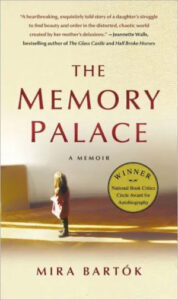
The Memory Palace
By Mira Bartok
In The Memory Palace, Mira Bartok takes a powerful look at the relationship between mothers and daughters, memory, trauma, and forgiveness. After suffering a brain injury from a terrible car accident, Bartok reexamines her childhood and her relationship with her mother. Throughout her early years, Bartok and her sister dealt with their mother’s increasingly paranoid and violent schizophrenia, ultimately changing their names and severing contact for their safety. In the wake of the crash, however, the author decides to seek out her mother, ultimately finding her in a homeless shelter in Cleveland and leading to an astonishing reconciliation.
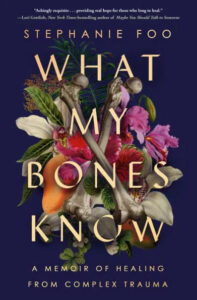
What My Bones Know
By Stephanie Foo
In What My Bones Know, radio producer Stephanie Foo shares her journey from a surprise mental health diagnosis at age 30 to a deeper understanding of the relationship between immigrant and generational trauma. After years of enduring panic attacks and searching for clarity about what was happening to her, Foo finally received an answer: She suffered from complex PTSD, a condition defined by the compound impact of trauma sustained over the course of years. Drawing on her finely honed reporting skills, Foo embarked on a quest back into her family’s past to better understand her C-PTSD, uncovering not just her own history of trauma but how trauma writes itself into all of our personal histories — and the steps we can take to reclaim our lives from it.
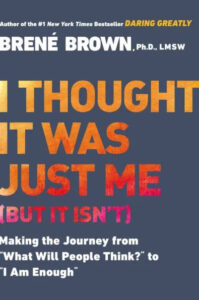
I Thought It Was Just Me
By Brené Brown
In I Thought It Was Just Me, Brené Brown, the celebrated author of Daring Greatly, challenges society’s drive for perfection and the subsequent feelings of inadequacy, failure, and shame. The author draws on hundreds of interviews and years of research to argue that rather than feel embarrassed by our so-called shortcomings, we should reframe them as the vulnerabilities that connect us to one another, make us human, and deepen our capacity for empathy. If you’re suffering from negative self-talk and feelings of worthlessness, this book is a must-read.
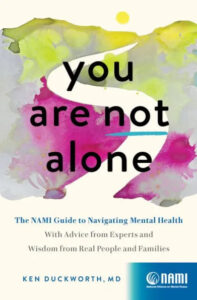
You Are Not Alone
By Ken Duckworth, M.D.
You Are Not Alone is a superb, all-encompassing guide to understanding mental health and getting help. Written by psychiatrist Dr. Ken Duckworth, it’s the first book from the National Alliance on Mental Illness and draws on insight from experts and practitioners to help identify symptoms, understand diagnoses, and navigate insurance. It also offers guidance on providing emotional support to loved ones in need. If you’re reaching out but feeling overwhelmed by the process, this is a great place to start.
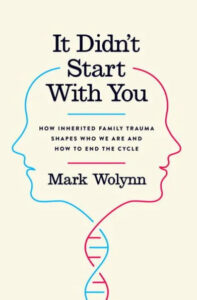
It Didn’t Start with You
By Mark Wolynn
In It Didn’t Start with You, Mark Wolynn, a leading researcher in inherited family trauma, explores how the life experiences of our ancestors are written into our bodies and minds. We aren’t just affected by our own trauma, Wolynn argues, but by the trauma of our parents, grandparents, and extended relatives. As the director of the Family Constellation Institute in San Francisco, Wolynn has worked with individuals and groups on their emotional and physical health for years. Here, he creates a guide to help readers create their own family trees of experience to better understand and work through familial trauma.
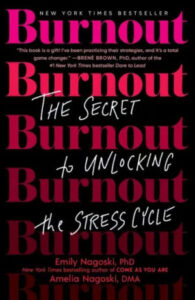
Burnout
By Emily Nagoski and Amelia Nagoski
In recent years, “burnout” has reached new levels of visibility. Women, in particular, are experiencing burnout at alarmingly high rates as they’re tasked with achieving perfection in their careers and at home, all while looking perfect and remaining cheerful. In Burnout, sisters Emily and Amelia Nagoski, experts in cycles of stress and exhaustion, put together an essential road map to reclaiming rest, rejecting outside expectations, and silencing your inner critic. If you’re tired of empty self-care platitudes or “you-can-have-it-all” clichés, this book asserts that you are already enough.
Share with your friends
Facebook
Twitter
LinkedIn
Pinterest
Related Articles
We all want to get better at getting things done, whether as a student, a CEO, or a stay-at-home parent. The following productivity books will help you do just that.
Whether you’re in need of guidance, a fresh perspective, or clear-eyed advice to achieving your goals, the motivational books below will usher you along the path to a happier, healthier you.
The new year is here, which means many of us are busy setting our resolutions — and thinking about how to keep them. That’s why we gathered a list of inspiring books to help you crush your goals this year and be your best self. Whether you’re looking to turbocharge your productivity, unleash your inner artist, or feel hopeful about the future, the insightful, science-backed books below will help get you there.
Celadon delivered
Subscribe to get articles about writing, adding to your TBR pile, and simply content we feel is worth sharing. And yes, also sign up to be the first to hear about giveaways, our acquisitions, and exclusives!
Celadon delivered
"*" indicates required fields
